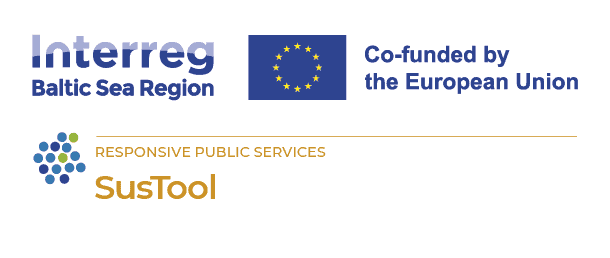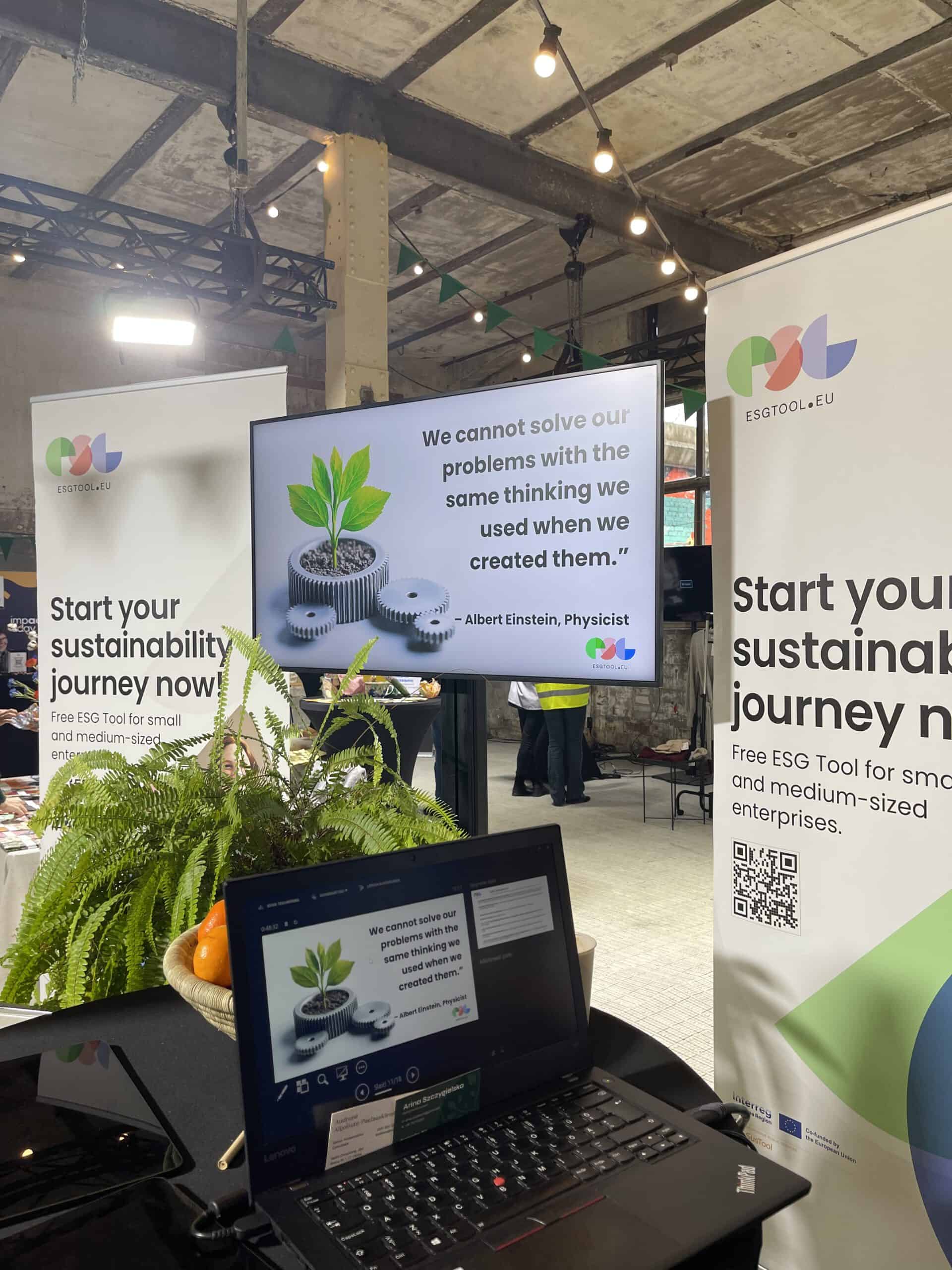
Impact Day 2024: driving sustainability forward with the ESG Tool
16 October 2024
Impact Day 2024 in Tallinn brought together a diverse range of representatives from the private sector, public institutions, and sustainability practitioners—all united in their commitment to advancing the sustainability transition. With over 170 speakers and thousands of participants from more than 30 countries, the event provided a crucial platform for discussing the future of sustainable business practices and the urgent need for systemic change. Our ESG Tool Project took part in these conversations, showcasing our work and engaging directly with SMEs navigating the complexities of EU sustainability regulations.
Navigating the Sustainability Transition
The discussions at Impact Day 2024 emphasized that SMEs face both challenges and opportunities in the rapidly evolving regulatory landscape. As expectations from consumers, regulators, and investors grow, businesses must adapt to stay competitive. However, sustainability is not merely a compliance issue; with the right tools, it becomes a pathway to growth and innovation. The ESG Tool supports this transition by providing SMEs with a clear roadmap for regulatory compliance and actionable strategies to embed sustainability into their core business operations, turning it into a strategic asset rather than a burden.
A central theme of the event was the need to integrate sustainability into the very fabric of business design. This shift is increasingly seen as essential for companies to remain competitive in the European market. By helping businesses align sustainability with their strategic goals, the ESG Tool empowers SMEs to leverage sustainable practices as drivers of long-term value creation and innovation, rather than just a means of meeting regulations.
Cross-Sector Collaboration
Impact Day 2024 highlighted the critical role of cross-sector collaboration in addressing the complex challenges of sustainability. We all know this transition cannot happen in silos; it requires collective efforts from businesses, governments, civil society, and international organizations. Collaborations like ours—spanning both local and international networks—are essential to scaling sustainable solutions and aligning with broader global sustainability goals. This effort, made possible through the support of the Interreg, highlights the importance of partnerships in driving forward sustainable practices.
A Critical Juncture for SMEs in the Sustainability Transition
As ESG Tool Lead Project Manager Joanna Annion noted: “During the event, it became clear that we need to communicate the capabilities of our tool more effectively. SMEs are looking for a clearer understanding of how the tool can help them navigate the complex journey of EU regulations. We’re committed to improving our messaging so businesses know exactly what steps to take. Looking to the future, it seems that the role of SMEs in the sustainability transition is only going to become more crucial as they are part of larger companies’ value chains. Free-of-charge ESG tools will be key in helping them not just meet regulatory requirements but actually thrive in a sustainable future.”
The ESG Tool operates within a collaborative framework, supported by partnerships across the Baltic Sea Region under the Interreg Program. These partnerships ensure the tool remains adaptable to different regulatory and market environments. Through our dissemination activities, we also foster knowledge exchange and capacity building among SMEs and other stakeholders.







